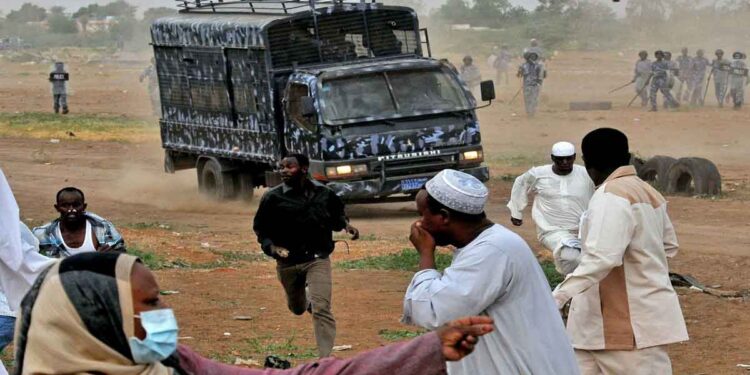The United Nations Mission in Sudan (UNMIS) has condemned the arrest by the military forces of three leaders of the Forces for Freedom and Change (FFC) coalition, after the three leaders’ participation in a meeting at UNMIS headquarters.
The United Nations Integrated Transition Assistance Mission in Sudan (UNITAMS) has said via its Twitter account today (5 November) that it has received reports of FFC central committee members’ arrest near the UNMIS headquarters yesterday afternoon. Taha Osman Isahaq, Sharif Mohamed Osman and Hamza Farouk had met with representatives of the UN’s Secretary-General there.
The mission called on the authorities to release every detainee taken since the military seised power on 25 October, and demanded that the army “stop detaining political activists” and refrain from committing “further human rights violations.”
UNITAMS stated that “these detentions hinder efforts to restore stability and a return to the path of democratic transition in Sudan and nullifies the impact of the release of four of the detained ministers yesterday.”
On 25 October General al-Burhan declared a state of emergency, dissolved the Sovereign Council, dismissed transitional ministers and state governors, and suspended various provisions of the transitional period’s constitutional document.
Hours before the announcement, authorities made a number of arrests, including of the transitional government’s civilian leader Abdullah Hamdok, plus ministers, officials, and various party leaders.
Protesting those decisions, peaceful demonstrations took place across the country. The authorities met the protests with repression including the use of live fire, which has led to 11 deaths since the announcement of the coup.
Before the military coup, since August 2019 Sudan had been governed by a transitional civilian-military coalition. The 53-month transitional period was to end with the elections planned for early 2024.
This transitional period began following the army’s removal of Omar al-Bashir from the presidency in April 2019, following popular protests against his rule. Bashir himself came to power via a military coup in 1989. Since then journalists, activists, human-rights defenders, and all those who criticized the Sudanese authorities were at risk of harassment, and even detention.






























